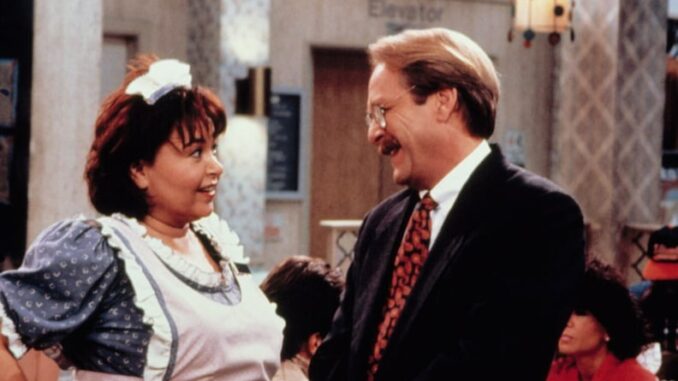
The beloved sitcom Roseanne has had a significant cultural impact since its debut in 1988. Centered around the Conner family, the show tackled various social issues with humor and authenticity. However, one notable change during its run was the absence of the original Becky, played by Alicia Goranson, in the final season. This article explores the implications of this absence, the reactions from fans, and how it affected the show’s dynamics.
The Transition of Becky
Alicia Goranson, who portrayed Becky Conner, left the show in the fifth season to pursue her education. During her absence, Sarah Chalke took over the role, and both actresses brought unique interpretations to Becky. Goranson returned for the revival in 2018, but her absence during the original final season raised questions about character continuity and audience attachment.

The character of Becky transitioned from a typical teenage girl to a more mature young woman navigating the complexities of adulthood. This evolution was pivotal in showcasing the struggles of working-class families during the 1990s. However, with Goranson’s exit, the show’s portrayal of Becky shifted significantly, affecting the overall family dynamic.
Audience Reaction
Fans of Roseanne had mixed feelings about the transition between actresses. While some appreciated Sarah Chalke’s portrayal, others felt a deep connection to Goranson’s original version of Becky. This divide in audience sentiment highlighted the importance of character continuity in long-running series.
The absence of Goranson in the final season led to a noticeable shift in the show’s tone. Many viewers felt that the chemistry between the characters was altered. The Conner family dynamic—so rich with humor and relatability—was disrupted, leaving fans longing for the original portrayal of Becky. This longing was not merely about familiarity; it was about the connection viewers had formed with Goranson’s character over the years.
Impact on Storylines
The final season of Roseanne attempted to address various societal issues, including economic struggles, family dynamics, and gender roles. However, the absence of the original Becky hindered the show’s ability to explore certain storylines effectively. For instance, the relationship between Becky and her parents, Roseanne and Dan, was a focal point in earlier seasons. Without the original actress, these interactions felt less authentic.

Additionally, the final season introduced new characters and plotlines that, while entertaining, did not resonate as strongly with audiences. The absence of a familiar face like Goranson’s made it challenging for viewers to invest in new narratives. As a result, the show struggled to maintain the same level of engagement it had achieved in previous seasons.
Character Development
One of the defining features of Roseanne was its commitment to character development. The characters evolved in response to their circumstances, allowing viewers to witness their growth over time. With Goranson’s absence, Becky’s character development was stunted. The final season presented a Becky who lacked the depth and complexity that had been established in earlier seasons.
This stagnation was particularly evident in Becky’s relationships with her friends and romantic interests. The absence of Goranson limited the exploration of these dynamics, leaving fans feeling unsatisfied. The show had previously excelled at portraying the intricacies of young love and friendship, but without the original Becky, these themes felt underdeveloped.
The Legacy of Roseanne
Despite the challenges posed by Goranson’s absence, Roseanne remains a significant cultural touchstone. The show broke new ground by addressing issues such as mental health, domestic violence, and LGBTQ+ representation. It provided a platform for discussions that were often overlooked in mainstream media.
The revival in 2018 allowed Goranson to reprise her role, bringing the original Becky back into the fold. This move was met with enthusiasm from fans who had longed for the original character’s return. It highlighted the enduring connection viewers have with the characters they grew up with, emphasizing the importance of authenticity in storytelling.
Conclusion
The absence of the original Becky during the final season of Roseanne serves as a reminder of the delicate balance between character continuity and narrative evolution in long-running television series. While the show continued to address vital social issues, the lack of Goranson’s portrayal left a noticeable void in the series’ emotional landscape.
As audiences reflect on the legacy of Roseanne, it’s clear that the show’s impact extends beyond its comedic moments. It offered a glimpse into the lives of a working-class family, highlighting their struggles, triumphs, and the complexities of everyday life. The absence of the original Becky may have altered the show’s trajectory, but it remains a beloved part of television history, influencing future generations of storytellers and audiences alike.
